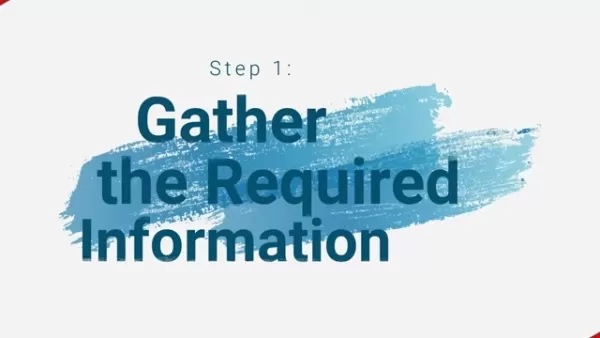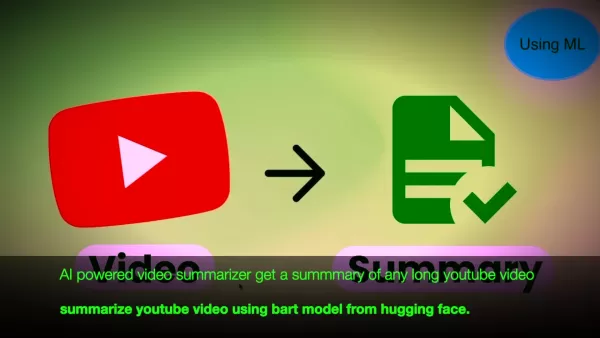Exploring the Art of Music Creation with AI Tools
The Power of AI Music Generators
Artificial intelligence (AI) is reshaping industries worldwide, and the realm of music creation is no stranger to this transformation. AI music generators have emerged as revolutionary tools, offering musicians, composers, and sound designers innovative ways to explore new sonic territories and refine their creative processes. Whether you’re a seasoned professional or a budding artist, understanding how to leverage AI in music opens up a world of possibilities that blend creativity with efficiency. This article delves into the intricate details of AI music creation, exploring its capabilities, advantages, and potential applications. Think of AI as a digital muse—a partner in your journey to craft something extraordinary.
What Sets AI Music Generators Apart
An AI music generator is essentially a software program that leverages artificial intelligence, particularly machine learning algorithms, to create original compositions. These algorithms are trained on extensive databases of existing music, allowing them to recognize patterns, structures, and styles. By analyzing these datasets, the AI can generate fresh musical pieces based on user-defined parameters like genre, tempo, mood, and instrumentation. At its core, an AI music generator serves as a creative ally, empowering users with the ability to experiment and push boundaries in ways previously unimaginable.

Unpacking the Building Blocks
To understand how AI music generators function, let’s break down their essential components:
- Data Training: The backbone of every AI music generator lies in its training data. Typically sourced from vast libraries of pre-existing music across multiple genres, eras, and styles, this data trains the AI to recognize musical nuances. The richer and more diverse the dataset, the better the AI’s ability to generate authentic and innovative compositions.
- Algorithms: Deep learning models such as recurrent neural networks (RNNs) and transformers play pivotal roles in processing and producing music. While RNNs excel at capturing temporal dynamics, transformers shine at understanding long-term relationships. These algorithms learn to predict the next note, chord, or rhythmic pattern based on contextual clues.
- User Input: To guide the AI’s output, users often provide specific inputs like genre, tempo, key, mood, and instrumentation. This input acts as a blueprint, shaping the AI’s creative decisions while leaving room for serendipitous discoveries.
- Generation Process: Once guided by user parameters, the AI employs its trained algorithms to craft new musical material. This involves creating sequences of notes, chords, and rhythms, then organizing them into cohesive structures. Some generators also incorporate elements of improvisation, encouraging unexpected yet delightful outcomes.
- Output & Refinement: The final product takes shape as MIDI files, audio recordings, or sheet music. Users can then tweak and polish this output using traditional music production software like Digital Audio Workstations (DAWs). This stage allows for personal touches that elevate the AI’s initial creation.
Getting Started: A Beginner’s Guide
Embarking on your AI music journey starts with choosing the right tool. Numerous options exist, ranging from free online platforms to premium software suites. When selecting a generator, consider factors like ease of use, feature sets, supported genres, and pricing tiers. Many tools offer free trials or basic versions to help you assess their suitability before committing financially. Some standout platforms include:
- Amper Music: Known for its flexibility, Amper offers customizable music creation across a broad spectrum of styles.
- Jukebox (OpenAI): Although primarily a research project, Jukebox showcases impressive raw audio generation capabilities.
- AIVA: Specializing in emotional and cinematic music, AIVA is ideal for film and video game scoring.
- Soundful: Streamlined for social media content, Soundful provides templates tailored for quick production.
- Boomy: Empowers users to create full songs instantly and distribute them globally.
- Ecrett Music: Offers AI-generated music with straightforward licensing for video projects.
- Loudly: Simplifies music creation for content creators with intuitive AI tools.
- BandLab SongStarter: Sparks musical ideas and loops to kickstart your songwriting.

Setting the Stage: Defining Your Parameters
Before diving into music creation, defining your parameters ensures the AI aligns with your vision. Common parameters include:
- Genre: Choose from pop, rock, classical, electronic, jazz, and more.
- Tempo: Specify BPM to dictate the pace of your music.
- Key: Decide on the tonal center of your composition.
- Mood: Set the emotional tone—happy, melancholic, energetic, etc.
- Instrumentation: Pick instruments like piano, guitar, drums, strings, or synths.
- Length: Define the duration of your track.
Adjusting these variables opens endless creative avenues. However, don’t hesitate to leave some aspects undefined—you might stumble upon something unexpectedly brilliant.

Bringing Ideas to Life: Refining the Music
After setting your parameters, instruct the AI to begin composing. Carefully listen to the generated piece and evaluate its alignment with your goals. Most generators provide tools for refining your work:
- Adjust Parameters: Tweak settings to influence the AI’s output further.
- Regenerate: Request new versions of the music based on your revised parameters.
- Edit Notes: Manually adjust notes, chords, and rhythms using built-in editors or exported files in DAWs.
- Add Effects: Enhance the sound with audio effects like reverb, delay, and chorus.
Iterate through these steps until you achieve your desired outcome. Experimentation fosters discovery—don’t shy away from trying unconventional approaches. Ultimately, think of AI as a springboard for your creativity, not a replacement for it.

Sharing Your Masterpiece: Exporting and Utilizing
Once satisfied, export your creation in a format suited to your project. Options include:
- MIDI: Ideal for representing musical notes and performance data.
- Audio: Suitable for playback in formats like MP3 or WAV.
- Sheet Music: Useful for printed notation in PDF format.
Incorporate your music into various projects such as:
- Videos: Background tracks for YouTube or Vimeo videos.
- Games: Dynamic soundtracks for video games.
- Podcasts: Intro/outro music for podcast episodes.
- Live Performances: Custom soundscapes for live events.
- Commercial Projects: Licensed music for advertising or branding campaigns.
Always review licensing agreements to ensure compliance with usage rights. Properly leveraging AI tools can amplify your productivity and unleash boundless creative potential.

Pricing Structures: Finding Value
AI music generators cater to different budgets and needs through varied pricing models:
- Free Plans: Allow limited access with basic features, perfect for testing.
- Subscription Plans: Offer unlimited access via monthly/yearly billing, often tiered by feature set.
- Pay-Per-Track: Charge per generated song, suitable for infrequent users.
- One-Time Purchase: Provide perpetual licenses for extensive usage.
Understand the trade-offs between affordability and functionality when choosing a plan. Always clarify licensing terms to avoid legal pitfalls.
 Related article
Related article
 AI-Powered Cover Letters: Expert Guide for Journal Submissions
In today's competitive academic publishing environment, crafting an effective cover letter can make the crucial difference in your manuscript's acceptance. Discover how AI-powered tools like ChatGPT can streamline this essential task, helping you cre
AI-Powered Cover Letters: Expert Guide for Journal Submissions
In today's competitive academic publishing environment, crafting an effective cover letter can make the crucial difference in your manuscript's acceptance. Discover how AI-powered tools like ChatGPT can streamline this essential task, helping you cre
 US to Sanction Foreign Officials Over Social Media Regulations
US Takes Stand Against Global Digital Content Regulations
The State Department issued a sharp diplomatic rebuke this week targeting European digital governance policies, signaling escalating tensions over control of online platforms. Secretary Marco
US to Sanction Foreign Officials Over Social Media Regulations
US Takes Stand Against Global Digital Content Regulations
The State Department issued a sharp diplomatic rebuke this week targeting European digital governance policies, signaling escalating tensions over control of online platforms. Secretary Marco
 Ultimate Guide to AI-Powered YouTube Video Summarizers
In our information-rich digital landscape, AI-powered YouTube video summarizers have become indispensable for efficient content consumption. This in-depth guide explores how to build a sophisticated summarization tool using cutting-edge NLP technolog
Comments (5)
0/200
Ultimate Guide to AI-Powered YouTube Video Summarizers
In our information-rich digital landscape, AI-powered YouTube video summarizers have become indispensable for efficient content consumption. This in-depth guide explores how to build a sophisticated summarization tool using cutting-edge NLP technolog
Comments (5)
0/200
![PatrickMartinez]() PatrickMartinez
PatrickMartinez
 September 25, 2025 at 4:30:30 PM EDT
September 25, 2025 at 4:30:30 PM EDT
Eu nunca tinha pensado que IA poderia ser tão criativa! 🎶 Essas ferramentas são incríveis para quem está começando na música e não sabe por onde começar. Mas será que algum dia vão substituir completamente os compositores humanos?


 0
0
![PaulYoung]() PaulYoung
PaulYoung
 September 6, 2025 at 6:30:40 AM EDT
September 6, 2025 at 6:30:40 AM EDT
Je trouve que les outils de création musicale IA sont incroyablement puissants, mais est-ce que cela ne va pas tuer la créativité humaine à long terme? 🎶 J'ai peur qu'on finisse par avoir une musique trop standardisée...


 0
0
![HaroldMiller]() HaroldMiller
HaroldMiller
 August 6, 2025 at 7:00:59 AM EDT
August 6, 2025 at 7:00:59 AM EDT
AI music generators sound like a game-changer! I’m curious how they compare to human composers—can they really capture the soul of music or just mimic patterns? 🤔


 0
0
![BillyAdams]() BillyAdams
BillyAdams
 August 4, 2025 at 3:00:59 PM EDT
August 4, 2025 at 3:00:59 PM EDT
AI music generators sound like a game-changer! I’m curious how they stack up against human composers—can they really capture the soul of music? 🎶


 0
0
![HarryGonzalez]() HarryGonzalez
HarryGonzalez
 July 27, 2025 at 9:18:39 PM EDT
July 27, 2025 at 9:18:39 PM EDT
AI music generators sound like a game-changer! I’m curious how they stack up against human composers—can they really capture the soul of music or just mimic patterns? 🤔 Excited to try one out!


 0
Top News
Top AI Video Generators in 2025: Pika Labs Compared to Alternatives
Gemini 2.5 Pro Now Unlimited and Cheaper Than Claude, GPT-4o
AI Voiceover: Ultimate Guide to Realistic AI Voice Creation
Cambium's AI Transforms Waste Wood into Lumber
AI Builder and Power Automate Revolutionize Document Summarization
OpenAI Enhances AI Voice Assistant for Better Chats
How to Ensure Your Data is Trustworthy for AI Integration
NotebookLM Expands Globally, Adds Slides and Enhanced Fact-Checking
Tweaks to US Data Centers Could Unlock 76 GW of New Power Capacity
Google Utilizes AI to Suspend Over 39 Million Ad Accounts for Suspected Fraud
More
Featured
0
Top News
Top AI Video Generators in 2025: Pika Labs Compared to Alternatives
Gemini 2.5 Pro Now Unlimited and Cheaper Than Claude, GPT-4o
AI Voiceover: Ultimate Guide to Realistic AI Voice Creation
Cambium's AI Transforms Waste Wood into Lumber
AI Builder and Power Automate Revolutionize Document Summarization
OpenAI Enhances AI Voice Assistant for Better Chats
How to Ensure Your Data is Trustworthy for AI Integration
NotebookLM Expands Globally, Adds Slides and Enhanced Fact-Checking
Tweaks to US Data Centers Could Unlock 76 GW of New Power Capacity
Google Utilizes AI to Suspend Over 39 Million Ad Accounts for Suspected Fraud
More
Featured
 Claude
Meet Claude: Your AI Assistant for Smart
Claude
Meet Claude: Your AI Assistant for Smart
 Cici AI
Ever wondered what Cici AI is all about?
Cici AI
Ever wondered what Cici AI is all about?
 Gemini
Ever wondered what the buzz about Gemini
Gemini
Ever wondered what the buzz about Gemini
 DeepSeek
Ever wondered what DeepSeek is all about
DeepSeek
Ever wondered what DeepSeek is all about
 Grok
Ever heard of Grok? It's this nifty AI a
Grok
Ever heard of Grok? It's this nifty AI a
 ChatGPT
Ever wondered what ChatGPT is all about?
ChatGPT
Ever wondered what ChatGPT is all about?
 OpenAI
Ever wondered what the buzz around OpenA
OpenAI
Ever wondered what the buzz around OpenA
 Tencent Hunyuan
Tencent Hunyuan-Large, huh? It's like th
Tencent Hunyuan
Tencent Hunyuan-Large, huh? It's like th
 Qwen AI
Ever wondered what Qwen AI is all about?
Qwen AI
Ever wondered what Qwen AI is all about?
 Runway
Ever wondered how to turn your regular v
More
Runway
Ever wondered how to turn your regular v
More
The Power of AI Music Generators
Artificial intelligence (AI) is reshaping industries worldwide, and the realm of music creation is no stranger to this transformation. AI music generators have emerged as revolutionary tools, offering musicians, composers, and sound designers innovative ways to explore new sonic territories and refine their creative processes. Whether you’re a seasoned professional or a budding artist, understanding how to leverage AI in music opens up a world of possibilities that blend creativity with efficiency. This article delves into the intricate details of AI music creation, exploring its capabilities, advantages, and potential applications. Think of AI as a digital muse—a partner in your journey to craft something extraordinary.
What Sets AI Music Generators Apart
An AI music generator is essentially a software program that leverages artificial intelligence, particularly machine learning algorithms, to create original compositions. These algorithms are trained on extensive databases of existing music, allowing them to recognize patterns, structures, and styles. By analyzing these datasets, the AI can generate fresh musical pieces based on user-defined parameters like genre, tempo, mood, and instrumentation. At its core, an AI music generator serves as a creative ally, empowering users with the ability to experiment and push boundaries in ways previously unimaginable.

Unpacking the Building Blocks
To understand how AI music generators function, let’s break down their essential components:
- Data Training: The backbone of every AI music generator lies in its training data. Typically sourced from vast libraries of pre-existing music across multiple genres, eras, and styles, this data trains the AI to recognize musical nuances. The richer and more diverse the dataset, the better the AI’s ability to generate authentic and innovative compositions.
- Algorithms: Deep learning models such as recurrent neural networks (RNNs) and transformers play pivotal roles in processing and producing music. While RNNs excel at capturing temporal dynamics, transformers shine at understanding long-term relationships. These algorithms learn to predict the next note, chord, or rhythmic pattern based on contextual clues.
- User Input: To guide the AI’s output, users often provide specific inputs like genre, tempo, key, mood, and instrumentation. This input acts as a blueprint, shaping the AI’s creative decisions while leaving room for serendipitous discoveries.
- Generation Process: Once guided by user parameters, the AI employs its trained algorithms to craft new musical material. This involves creating sequences of notes, chords, and rhythms, then organizing them into cohesive structures. Some generators also incorporate elements of improvisation, encouraging unexpected yet delightful outcomes.
- Output & Refinement: The final product takes shape as MIDI files, audio recordings, or sheet music. Users can then tweak and polish this output using traditional music production software like Digital Audio Workstations (DAWs). This stage allows for personal touches that elevate the AI’s initial creation.
Getting Started: A Beginner’s Guide
Embarking on your AI music journey starts with choosing the right tool. Numerous options exist, ranging from free online platforms to premium software suites. When selecting a generator, consider factors like ease of use, feature sets, supported genres, and pricing tiers. Many tools offer free trials or basic versions to help you assess their suitability before committing financially. Some standout platforms include:
- Amper Music: Known for its flexibility, Amper offers customizable music creation across a broad spectrum of styles.
- Jukebox (OpenAI): Although primarily a research project, Jukebox showcases impressive raw audio generation capabilities.
- AIVA: Specializing in emotional and cinematic music, AIVA is ideal for film and video game scoring.
- Soundful: Streamlined for social media content, Soundful provides templates tailored for quick production.
- Boomy: Empowers users to create full songs instantly and distribute them globally.
- Ecrett Music: Offers AI-generated music with straightforward licensing for video projects.
- Loudly: Simplifies music creation for content creators with intuitive AI tools.
- BandLab SongStarter: Sparks musical ideas and loops to kickstart your songwriting.

Setting the Stage: Defining Your Parameters
Before diving into music creation, defining your parameters ensures the AI aligns with your vision. Common parameters include:
- Genre: Choose from pop, rock, classical, electronic, jazz, and more.
- Tempo: Specify BPM to dictate the pace of your music.
- Key: Decide on the tonal center of your composition.
- Mood: Set the emotional tone—happy, melancholic, energetic, etc.
- Instrumentation: Pick instruments like piano, guitar, drums, strings, or synths.
- Length: Define the duration of your track.
Adjusting these variables opens endless creative avenues. However, don’t hesitate to leave some aspects undefined—you might stumble upon something unexpectedly brilliant.

Bringing Ideas to Life: Refining the Music
After setting your parameters, instruct the AI to begin composing. Carefully listen to the generated piece and evaluate its alignment with your goals. Most generators provide tools for refining your work:
- Adjust Parameters: Tweak settings to influence the AI’s output further.
- Regenerate: Request new versions of the music based on your revised parameters.
- Edit Notes: Manually adjust notes, chords, and rhythms using built-in editors or exported files in DAWs.
- Add Effects: Enhance the sound with audio effects like reverb, delay, and chorus.
Iterate through these steps until you achieve your desired outcome. Experimentation fosters discovery—don’t shy away from trying unconventional approaches. Ultimately, think of AI as a springboard for your creativity, not a replacement for it.

Sharing Your Masterpiece: Exporting and Utilizing
Once satisfied, export your creation in a format suited to your project. Options include:
- MIDI: Ideal for representing musical notes and performance data.
- Audio: Suitable for playback in formats like MP3 or WAV.
- Sheet Music: Useful for printed notation in PDF format.
Incorporate your music into various projects such as:
- Videos: Background tracks for YouTube or Vimeo videos.
- Games: Dynamic soundtracks for video games.
- Podcasts: Intro/outro music for podcast episodes.
- Live Performances: Custom soundscapes for live events.
- Commercial Projects: Licensed music for advertising or branding campaigns.
Always review licensing agreements to ensure compliance with usage rights. Properly leveraging AI tools can amplify your productivity and unleash boundless creative potential.

Pricing Structures: Finding Value
AI music generators cater to different budgets and needs through varied pricing models:
- Free Plans: Allow limited access with basic features, perfect for testing.
- Subscription Plans: Offer unlimited access via monthly/yearly billing, often tiered by feature set.
- Pay-Per-Track: Charge per generated song, suitable for infrequent users.
- One-Time Purchase: Provide perpetual licenses for extensive usage.
Understand the trade-offs between affordability and functionality when choosing a plan. Always clarify licensing terms to avoid legal pitfalls.
 AI-Powered Cover Letters: Expert Guide for Journal Submissions
In today's competitive academic publishing environment, crafting an effective cover letter can make the crucial difference in your manuscript's acceptance. Discover how AI-powered tools like ChatGPT can streamline this essential task, helping you cre
AI-Powered Cover Letters: Expert Guide for Journal Submissions
In today's competitive academic publishing environment, crafting an effective cover letter can make the crucial difference in your manuscript's acceptance. Discover how AI-powered tools like ChatGPT can streamline this essential task, helping you cre
 US to Sanction Foreign Officials Over Social Media Regulations
US Takes Stand Against Global Digital Content Regulations
The State Department issued a sharp diplomatic rebuke this week targeting European digital governance policies, signaling escalating tensions over control of online platforms. Secretary Marco
US to Sanction Foreign Officials Over Social Media Regulations
US Takes Stand Against Global Digital Content Regulations
The State Department issued a sharp diplomatic rebuke this week targeting European digital governance policies, signaling escalating tensions over control of online platforms. Secretary Marco
 Ultimate Guide to AI-Powered YouTube Video Summarizers
In our information-rich digital landscape, AI-powered YouTube video summarizers have become indispensable for efficient content consumption. This in-depth guide explores how to build a sophisticated summarization tool using cutting-edge NLP technolog
Ultimate Guide to AI-Powered YouTube Video Summarizers
In our information-rich digital landscape, AI-powered YouTube video summarizers have become indispensable for efficient content consumption. This in-depth guide explores how to build a sophisticated summarization tool using cutting-edge NLP technolog
 September 25, 2025 at 4:30:30 PM EDT
September 25, 2025 at 4:30:30 PM EDT
Eu nunca tinha pensado que IA poderia ser tão criativa! 🎶 Essas ferramentas são incríveis para quem está começando na música e não sabe por onde começar. Mas será que algum dia vão substituir completamente os compositores humanos?


 0
0
 September 6, 2025 at 6:30:40 AM EDT
September 6, 2025 at 6:30:40 AM EDT
Je trouve que les outils de création musicale IA sont incroyablement puissants, mais est-ce que cela ne va pas tuer la créativité humaine à long terme? 🎶 J'ai peur qu'on finisse par avoir une musique trop standardisée...


 0
0
 August 6, 2025 at 7:00:59 AM EDT
August 6, 2025 at 7:00:59 AM EDT
AI music generators sound like a game-changer! I’m curious how they compare to human composers—can they really capture the soul of music or just mimic patterns? 🤔


 0
0
 August 4, 2025 at 3:00:59 PM EDT
August 4, 2025 at 3:00:59 PM EDT
AI music generators sound like a game-changer! I’m curious how they stack up against human composers—can they really capture the soul of music? 🎶


 0
0
 July 27, 2025 at 9:18:39 PM EDT
July 27, 2025 at 9:18:39 PM EDT
AI music generators sound like a game-changer! I’m curious how they stack up against human composers—can they really capture the soul of music or just mimic patterns? 🤔 Excited to try one out!


 0
0





























